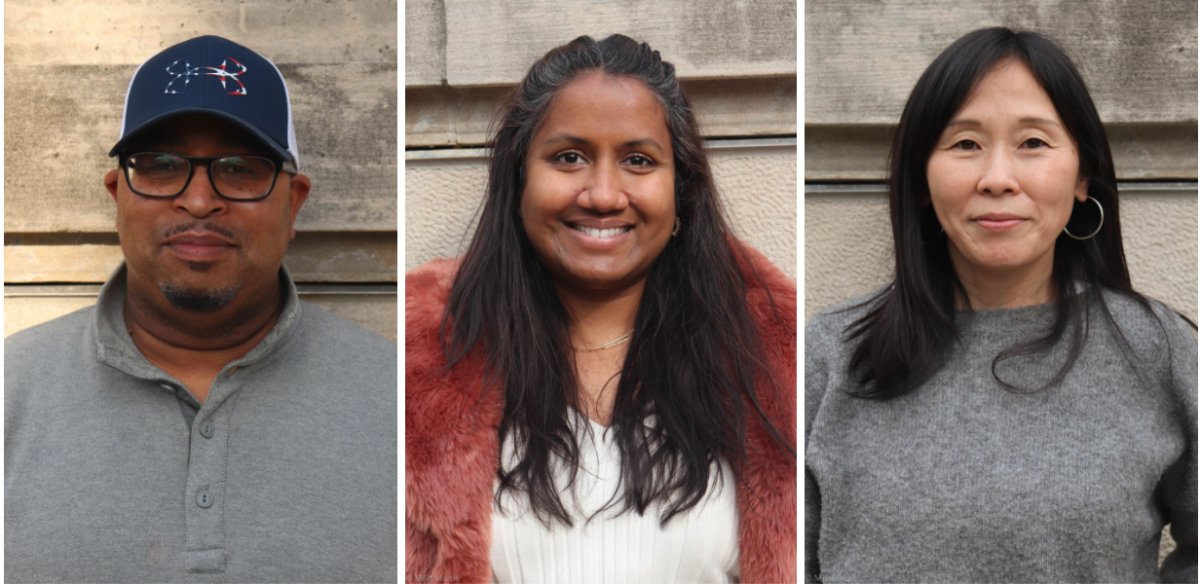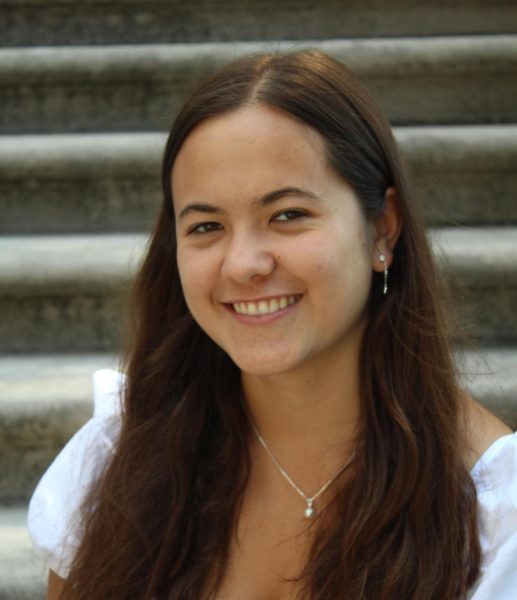Affinity groups will be implemented on the Tregaron campus in January for the first time at WIS. Affinity groups are spaces for students and faculty who identify with the designated group, which will be People of Color, White Awareness & Accountability, LGBTQ+ and Touched by Adoption, to have conversations about identity and connect with people with shared experiences.
In response to the Black Lives Matter movement in June 2020, WIS introduced the International-mindedness, Diversity and Inclusion (IDI) committee. The committee is made up of faculty members and parents who began discussing ways to make WIS more inclusive towards identity.
Students requested the groups after attending the Student Diversity Leadership Conference (SDLC), according to Upper School English teacher and People of Color affinity group faculty leader Susan Chung-Fontaine. The IDI committee sent out a survey last school year to faculty, admin, students, alumni and parents, which showed, from the 802 responses, interest in having designated places to discuss identity.
The IDI committee was split into smaller subcommittees with specific focuses. The school culture subcommittee started planning affinity groups in early 2021. By June, they had planned to start with affinity groups for faculty members. But after meeting in August before this school year began, they decided to roll out all the student groups first. According to Middle School English teacher Sonia Chintha, the faculty felt that the school had “waited long enough and that it needs to happen.”
“What we realize is that there’s such a large culture shift that needs to happen at WIS,” Chintha, who was on the school culture subcommittee and will co lead the middle school People of Color group, said. “We need a ton of education, so because we had already introduced it to students, we feel more confident [in the idea].”
The groups are each going to be led by teachers who identify with the groups. This was taken into account while creating the groups, since there needed to be a faculty member identifying with the designated identity in order for a group to exist.
Meetings will be once a month, and most likely be 30-40 minutes long. Each group will meet at different times, most likely after school, to give students the option to be a part of multiple affinity groups, according to Chintha. Participants must maintain confidentiality of all that is discussed in the groups, since sensitive topics may come up, according to Chung.
Affinity groups are optional, and neither Chung nor Chintha see them becoming required at any time. They believe members should have their own personal interest in the groups.
“People are in different places. And some may feel like ‘I’m good. I don’t need to go on that journey at school,’” Chung said. “But for others, they might still have questions and be in this place of ‘yeah I know I’m this. I identify here, but I don’t really know what it means.’”
Many teachers feel strongly that these affinity groups will benefit students and the community tremendously. Middle School English teacher Marissa McCauley is leading the White Awareness & Accountability group in the middle school.
“A white allies group [is] where we can talk about what it means to be an ally, but also specifically to talk about what it means to be a white person in our world,” McCauley said. “Both of those things are very important. I think both of those things are very much connected.”
McCauley has already planned the first meeting, where she will share her experience living as a white person in the US. She thinks the group is especially important to have because often white people are allowed to live without thinking much about their race in society.
“It’s missing out on an opportunity to really know yourself well,” she said. “It’s thinking about our role as white people in anti-racist work.”
Chung wants students to give the affinity groups a try, even if they are unsure. They are also welcome to try or be a part of various different groups.
“I would say, don’t just go in for a minute or two, but really go for the entire time, and give it a chance and be open,” Chung said. “If you walk away like, ‘actually this doesn’t resonate with me, but I also identify in that one,’ then yes, you can absolutely go to that one as well.”
Initially, Chung hopes to have very intentional activities, events and discussions. As time goes on, she believes discussions will become more organic. Students will also become more comfortable sharing with each other, which she hopes will lead to very honest conversations, resulting in better learning.
“My hope is that people will bring more of their full self to school,” Chung said. “My other hope is that we can better start engaging and navigating difficult conversations, and some of those difficult conversations have to do with identity.”
The People of Color group will break up into smaller groups, according to Chung. She had a major role in the development of this project, and she will co-lead People of Color in the upper school with Grades 9/10 Principal Allison Ewing and Narrative Film teacher Michael McCorkle.
“There’s so many racial groups or ethnic groups in [People of Color],” Chung said. “But the plan was to break up into micro-affinities, and make sure that each group that attends it still has time and space to explore their specific identity.”
McCauley says conversation will be open to create more groups. “In no way do any of us think that this is an exhaustive list of everybody’s identities on campus,” she said. “I think we’re very much viewing it as a jumping off point.”
While creating these groups, Chung wanted the particular groups implemented to be as true to WIS as possible, since it is an international school. She took in student opinions from a feedback form sent out after the announcement of the groups, and is still open to adapting.
McCorkle is hoping for very open dialogue in these groups. He doesn’t want to restrict what students can talk about, since he believes it is counterproductive, and hopes for organic conversations.
“It’s like a teacher that has a lesson plan,” he said. “You can come up with the best laid plans, but it doesn’t always go to plan.”
Faculty and student leaders have begun to receive training. A guest speaker came to the one student training session that has taken place so far, explaining the basics of affinity groups, according to sophomore Valeria Cuesta Lopez, who is training to be a student leader. They were also taught how to react in specific situations when someone may be rude to another person, or someone who they feel doesn’t belong with the affinity group shows up.
As of now, Cuesta Lopez does not know which group she will be leading. Student leaders filled out a form, where they selected which group they would prefer to lead, and she chose Person of Color, and hopes to lead the Hispanic subcategory, if it becomes an option.
Cuesta Lopez has heard criticism from peers about the affinity groups creating more division, but she hopes students will give the groups a try before making assumptions, even if they may be doubtful.
“If you don’t know what it is, just try it,” she said. “You don’t have to commit to it, you can just come to one, or talk to someone who’s in one. But don’t purposely judge something and spread rumors about something you don’t know. Just try it out, you’ve got nothing to lose.”
Upper School Economics and History teacher Guy Neal, who was adopted as a baby, will be one of the faculty leaders of the Touched By Adoption group. He was very intrigued when he found out this group would be an option as it is something he has never seen before, and something personal to him.
“To see Touched by Adoption was almost mind-blowing,” Neal said. “Because in a professional setting or an educational environment, I’ve never seen it before. Being with others, faculty and students, who share that experience could lead to some fascinating discussions.”
Neal is both excited and nervous about leading this group. Since he has never led a group like this before, he is ready for flexibility.
“It offers an opportunity to take this specific affinity group in whatever direction the faculty and the students may take it,” Neal said.
Although there is excitement, faculty leaders are also preparing to be challenged. McCauley acknowledges that exploring identity can be difficult, and that mistakes will be made along the way.
“Sometimes it’s messy, and sometimes it’s hard and sometimes it feels uncomfortable,” she said. “So the idea of doing that for myself, and also doing that alongside students and trying to support students in their own messy explorations of identity.”
McCauley is looking forward to the meetings and thinks it’s really important to have these spaces for students.
“WIS will really feel the value of this opportunity,” she said. “The idea that our community is making this a priority says a lot about the direction that we want to head in. And our goals for providing spaces for kids of all different identities to feel like they have a space within our community where they can fully be themselves.”
Both Chintha and Chung have taken part in affinity groups before, which have proven rewarding to them both. For Chintha, it was a very empowering experience.
“There’s nothing like being able to say ‘I understand where you’re coming from, and I’ve been there,’” she said.
By Naomi Breuer

































































